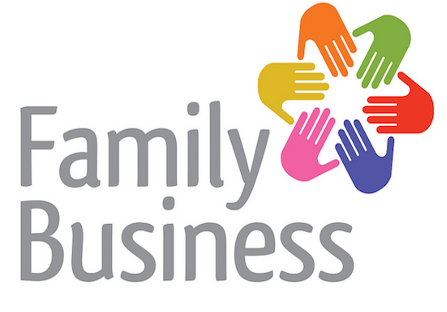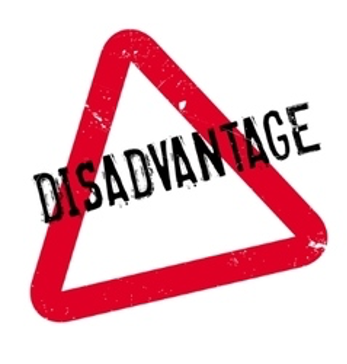
Let’s Know-How Business Valuation Helps Family Business To Thrive Through Transition 
Family Business and their Valuation
What is a Family Business??
The family held and run businesses are the oldest and most prevalent form of business owners anywhere in the world. Family businesses form the backbone of any country’s prosperity and economy. It is a money-making enterprise where business owners are related to one another by blood or by marriage. Family businesses are corporations, partnerships, LLCs or other business associations. They may be small local businesses or national endeavours and when the economy opened up, these businesses grew significantly.

1. Family Business in India – Introduction
In India, keeping business ownership within a family is a deeply-rooted practise for ages. India enjoys a rich and glorious history of family-owned businesses. Initially, family businesses in India started in the form of trading and money lending involving the hustle and bustle of the bazaar. It was also confined to certain communities. Take any family-run business in India – if you look at the history of that particular business, it goes back to the 1920s and 30s. So, most of them have been here for more than a century. It is a part and parcel of Indian tradition and culture. Today, Family businesses in India constitute a significant chunk of the economy, contributing almost 70% of the GDP. While covid was a difficult time for all businesses, most of them adapted to the changing environment by diversifying their businesses, in ways convenient for their customer. Statistics indicate that almost 85% of India Inc companies are family businesses. Family businesses are the core of the Indian economy. Without them, Indian businesses may fail because it not only contributes to the GDP, it is also the biggest creator of employment opportunities. Hence more success of such businesses in India will translate to more success for the Indian economy.
2. Advantages of family Business:

If you start or join a family business, as a family member you’re likely to benefit from a range of advantages that you often don’t find in other enterprises.
- Stability: The leadership of a family business is normally determined by the position of each individual in the family. As a result, there is generally longevity in leadership, which ensures overall stability within a family-run business. Knowing you’re building for future generations encourages the long-term thinking needed for growth and success. In many family-owned companies, the business leader will stay in the position for many years, with life events – such as illness, retirement or death – is the trigger for change at the top.
- Commitment: Family firms tend to have a greater sense of commitment and accountability at their heart than non-family firms, as it is not just the needs of the business at stake, but the needs of the family too. Building a lasting family enterprise means you’re more likely to put in the extra hours and effort needed to make it a success. This desire for both the family and business to stay strong fosters additional benefits, including a greater understanding of the industry, the organisation and the job; stronger customer relationships; and more effective sales and marketing.
- Flexibility: Working in a family-run firm requires a lot of flexibility. While non-family businesses tend to have very clearly delineated responsibilities for every role, family members will sometimes be required to wear several different hats, taking on tasks outside of their formal remit where needed.
- Long-term outlook: Non-family firms generally draw up their goals for the next quarter. Family firms, however, think years – or even decades – ahead. A longer-term perspective is a good way to foster a culture of clear strategy and decision-making throughout the business.
- Decreased cost: Economic downturns and other challenging times can be a struggle for many businesses, where the board of directors needs to work out how to keep the business afloat while still paying staff. In family firms, however, it will often be the case that family members are willing to contribute financially to keeping the business afloat during times like these. For example, accepting lower pay than they would get elsewhere to help the business in the longer term, or deferring wages during a cash flow crisis.
- Common values: The member and his family are likely to share the same ethos and beliefs on how things should be done. This will give you an extra sense of purpose and pride – and a competitive edge for your business.
- Loyalty: Strong personal bonds mean all the family members are likely to stick together in hard times and show the determination needed for their business’ success.
3. Disadvantages of the family business:

While it is clear that there are plenty of benefits to family-owned companies, they also have their downsides:
- Lack of skills or experience: Some family businesses will appoint family members into roles that they do not have the skills or training for. This can have a negative effect on the success of the business and lead to a stressful working environment.
- Family conflict: conflict can arise in any business, but it’s important to consider that disputes within a family business can become personal as the staff are working with the people closest to them. Bad feelings and resentment could destabilise the business’ operations and put your family relations at risk.
- Favouritism: It is important to make business decisions for business reasons, rather than personal ones. This can sometimes be difficult if family members are involved.
- Succession planning: many family business owners may find it difficult to decide who will be in charge of the business if they were to step down. Research reveals that 62% of employees say they would be “significantly more engaged” with their role if they knew their employer had a clearly defined succession plan in place. The leader must determine objectively who can best take the business forward and aim to reduce the potential for future conflict – this can be a daunting decision.
- Lack of family interest: In a family business, there can be a great deal of pressure on future generations to keep the business going, even if they have no real interest in doing so. This can result in a workforce – or worse, management – consisting of family members who are apathetic, unenthusiastic and disengaged.
- A lack of structure: Family businesses rely firmly on trust – but trust alone may not be the best way. It is still vital to take rules seriously – both internal rules and external corporate law.
4. Reasons to value family business:

While public companies are required to report their financials on a quarterly and annual basis, family businesses may go years without knowing how much their business is really worth. Private companies don’t need to know the precise value of their business each day but there is an innate need for calculating that value to manage the performance of the business, plan succession, communicate with outside stakeholders, and help directors answer the critical question: Are we creating value today or destroying value?
The challenge to business leaders in these circumstances is the misinterpretation that business valuations often look at historical information and require that certain organizational structures be in place for a number of years. In fact, most valuations are present and forward-looking.
Family businesses that have not taken steps to protect the value of their business may find themselves in trouble should a formal valuation need to take place at short notice for very strategic decisions. In order to understand what business leaders can do to protect (and increase) the value of their company, we need to understand some of the commonly accepted methods of evaluating a family business.
Many family business owners consider business valuation a technical exercise. If a destination to unlock the value for the family has to be done then the journey of going through the valuation exercise, identifying the key drivers and focusing on them, needs to be done.
Family business valuation should be a process – that acts as a benchmark for growth. To be a valuable planning tool, it should be considered a part of the annual strategic planning process, not merely the result of an event requiring it.
- Buying or selling shares to employees/ ESOPS
- Retiring and selling to other family members
- Planning gifts to heirs
- Tracking the progress of business plans towards the achievement of results
- For potential buyers/investors
- Marital Disputes
- Succession Planning
- Disinvestments
- Joint ventures and collaboration
The challenge to the business leaders is that most valuations take a historical approach to valuation. They require a formal structure to be in place for a number of years, with proper financial discipline. Most family businesses fail to meet these requirements and face a challenge when posed with a family business valuation exercise.
5. Methods to value family Business :

Valuations of closely held family businesses as other business needs to be understood and purposes for the valuation should be clearly defined. There is no one “right” way since the value arrived at, is contingent on the assumption used.
In every engagement, an appropriate method should be determined depending upon the reason and use for the valuation. If necessary, the valuation analyst should discuss the standards of value with their client. This can reduce confusion and provide certainty. The business may likely be the most significant asset, so it may be wise to have your business valued sooner than later, to start dispersing that value to family members or others. It’s important to work closely with a financial expert to first discuss your overall plan for gifting your business and conducting a qualified valuation. Your valuation analyst will use a combination of the following methodologies to carefully analyse and determine an appropriate business value:
- Capitalization of Earnings : For small family businesses, the value hinges on the amount of cash flow available to the investor or owner. Think of the business as a dividend-producing machine, and capitalize these dividends to come to a value. This is also known as “capitalization of historic earnings.” Under this approach, overall profitability, as well as the current and future capital needs of the business must be carefully examined by the valuation analyst.

- Discounted Cash Flow Method : A discounted cash flow analysis involves forecasting the appropriate cash flow stream over an appropriate period and then discounting it back to a present value at an appropriate discount rate. This discount rate considers the time value of money, inflation, and the risk inherent in the ownership of the asset or security interest being valued.
In order to conduct a DCF analysis, you must project the financials for the future – usually 5-7 years; then use an appropriate discount rate to discount these future cash flows to arrive at the family business valuation number. You need to have sustainable and predictable cash flows in order to use this method reliably.
- Market Approach : Another way to assess the value of your business is to use a market approach, and determine what similar companies are selling for within your industry and marketplace. This approach is seldom used by itself but can help ensure that your business is valued within a correct range. Be aware that in determining values, consideration needs to be given to the reasons for the valuation, the actual buyers and sellers, family members, employees and other parties of interest, payment terms and periods, income taxes and tax-based allocations, transaction costs and legal precedents, and rulings that guide and establish values. In the presence of any one of these, a fair market valuation might not be appropriate.
6. Issues in Family Business Valuation :

There are two major issues in valuing family businesses:
- Management issues
- Process Issues
On the management side, businesses suffer in valuation due to a lack of a formal board; lack of succession planning for directors, which leaves the business vulnerable to loss of key personnel; improper employment of family members in senior positions; and inadequate family governance structures.
On the operational/process side, a lack of business strategy; a lack of documented systems and procedures; and a lack of robust financial reporting can all damage a valuation exercise.
Developing a valuation method for your business is more than just good business sense; it can be extremely helpful when dealing with bankers, external stakeholders and the open market in general. Being able to immediately determine the health of a business, its future direction, and the importance of that strategy can help communicate that value to outsiders who are not familiar with family businesses.
The business valuation importance is often ignored in many family businesses. A valuation methodology can also help family business leaders understand the key drivers of business value. While conducting a full-scale valuation exercise can be helpful, it doesn’t need to happen very often, as long as business leaders know how to quickly estimate value and assess whether improvements to their key drivers has been achieved.

In conclusion, remember that a business valuation professional can help act as a business advisory during the valuation process. By identifying the key value drivers, entrepreneurs can make effective succession planning decisions to keep the business unhindered and running through the future generations.
